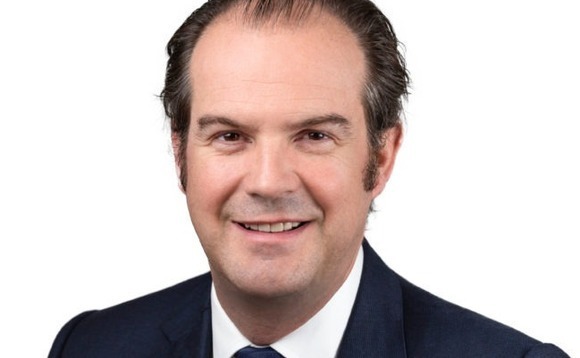
Q&A: 17Capital's Pierre-Antoine de Selancy

17Capital is a credit provider to the private equity industry, lending against fee streams at the GP level and the fund level. Pierre-Antoine de Selancy, the firm’s managing partner, assesses the market
Q: How was the 17Capital strategy conceived?
A: I used to live in Hong Kong and that's where I met my co-founder [Augustin Duhamel] in 1995; we were both at BNP. I was working in project finance. Then I was active in secondaries with Coller Capital and AGF Private Equity [a subsidiary of what became Allianz], and we launched 17Capital in 2008 to provide an alternative to the secondary market for investors in buyout funds. Back then, if an investor needed cash, the only option was to sell its position in a fund. We thought the investor should be able to borrow against that position. That's exactly what we do today: we analyse the risk and understand the liquidity of portfolios of assets, and we provide financing against them.
Q: The first clients were LPs…
A: Our first transaction in 2009 was with an LP, but six months later, we started working with GPs. Now, GPs are the bulk of the business. We have two strategies, preferred equity and credit [also known as NAV financing], and last year we deployed about USD 2bn in each one.
Q: What is the difference between the two strategies?
A: Think of the relationship between them as like mezzanine to senior loans: one has a higher multiple in terms of debt to EBITDA and might have some warrants attached to it; the other has a lower EBITDA multiple and more covenants. Preferred equity is a very flexible form of credit we provide to management companies or GPs. We don't have security on what they own; we just get the cash flows when exits happen. With the credit strategy we are lending at the fund level, there is an LTV [loan-to-value] of up to 20%, there is maturity, and we have security on the assets. In the first five years of a fund, a manager might use subscription credit lines. Once the portfolio is complete, we provide additional capital [in the form of a credit solution] between years five and 10. This could involve supporting a portfolio company that needs funding for an acquisition or helping a fund increase its investment in a company because a co-investor wants out.
Q: What tend to be the needs of GPs opting for preferred equity solutions?
A: There might be succession happening at the management company and some shareholders need to take out others or they are growing and buying other businesses. But the most common need is financing commitments to their own funds. Sometimes exits are slower than people had anticipated and they need capital to fund new commitments while waiting for distributions from previous funds. Alternatively, they might want to be more aggressive on the commitments they are making, and we help fund that. Before we arrived, some private banks would lend money to individuals, but there weren't many options. I've known people to re-mortgage their houses or even sell their houses to finance fund commitments.
Q: What are the key due diligence points?
A: The first thing we look at is the quality of the organisation and the track record. We want to know about their capacity to raise new funds, because if they can't do that, they will hold onto existing portfolio companies instead of selling them. Last year, 90% of what we did was with the top 100 managers globally; and two-thirds of what we do is repeat business. Then we look at the portfolio companies – the amount of leverage used, the business plan, whether they are ahead of or behind plans set out on acquisition – and we put the right structure in place.
Q: Have you contributed to an increase in GP commitments in percentage terms?
A: We've seen it. Commitments tend to be in the 5%-20% range, but there's a long-term trend of increases. Building a balance sheet has been accepted in the industry ever since the IPOs of Blackstone, Carlyle, and KKR. The private equity business model has moved from asset-light to more capital-intensive – for example, firms are launching new strategies and they need capital to recruit people to run those strategies and to make commitments to those strategies. We are very much part of this transformation.
Q: Alternatively, these initiatives could be funded by selling a stake in the management entity…
A: Sometimes it's both. There is more risk with us. People can sell 5%-10% of the business, get the cash and invest it, and they don't have to pay it back. When they take money from us, they must pay it back. There have been situations where a founder has sold 20% of the GP and we come in five years later and accelerate the buyback.
Q: What's your loss ratio?
A: Zero. We've made 91 investments, deployed USD 10.5bn, and completed 47 exits, with no losses. We will get one someday. There is one investment we are currently holding below cost and we will have to see whether we get our money back. Exits from the portfolio haven't been as quick as expected, but they could come at any time.
Q: Have you worked with any Asian managers?
A: We haven't worked with any Asia-based managers. We've worked with global firms that have raised Asian funds, but it's a small part of our strategy. We've done less in Asia because there's less comfort on the liquidity side, and that's a critical element of the underwriting.
Q: How big is the addressable market?
A: We saw USD 35bn in deal flow last year and we believe it's a USD 100bn opportunity. Eight years from now, it could be USD 700bn.
Q: What challenges did you face getting traction?
A: We had so many meetings where people said, ‘It's great, but I'm not going to be the first one. Please let me know when you do anything with my competitors because I don't want to be the last either.' We went to people we had worked with before, so our first transaction was with Apax Partners in France. I'd invested in some Apax funds when I was at Allianz, so they knew me and were comfortable doing the deal. Private equity is a very conservative industry. At the same time, our first fund was EUR 88m [USD 94m]. If you're building a portfolio of 15 investments and you can only do EUR 6m per deal, you're not going to speak to KKR, Blackstone, and Carlyle. It took time to build the market.
Q: At what point did you feel you had achieved critical mass?
A: Probably when we closed Fund IV on EUR 1.2bn in 2017. Our first three funds were EUR 88m, EUR 208m, and EUR 500m. One of our investors told me that Fund III was our first fund because that is when you start talking to the right people; before then, we were sub-scale. For years, people would ask whether anyone would take our money, whether the market was big enough. Raising EUR 1.2bn really put us on the map. In 2019, we launched the credit strategy and became a much more complete source of capital for the GPs we work with – not only do we have repeat business, but we have people going from credit to preferred equity. We are now investing our fifth fund of USD 2.9bn and our credit fund is EUR 2.6bn, so they are about the same size.
Q: What are the main obstacles to continued growth?
A: What concerns me most is being able to provide the right return for investors, especially in an environment where a wide range of options is available. We deliver mid to high teens on preferred equity and high single teens to low double-digit on credit. The timeframe is shorter than for secondaries because we don't need to wait until a fund is liquidated; we might exit when 20%-30% has been sold. And it's less risky than direct debt because we have exposure to 10-15 companies, not just one company. However, liquid credit and high-yield bonds are attractive to a lot of investors. We need to make sure our returns are high enough for investors to come back but not so high that no one takes our money because we're too expensive.
Q: Is competition intensifying?
A: It's still a market with little intermediation. Transactions are bespoke and they come from bilateral conversations. We did 1,400 sourcing meetings last year and we made 16 investments. When we meet prospective clients, we spend two minutes explaining what we do and 58 minutes listening to their plans and thinking about how we can be useful. There are three or four groups with dedicated pools of capital in this space and some general credit managers are competitors because they have a very broad definition of what they can do. No one has done as many investments and exits as us.
Q: Last year, Oaktree Capital bought a majority interest in 17Capital. What was the purpose of this?
A: The focus is on improving our coverage of the US market, not from a fundraising perspective, but for deal flow. They are a direct lending organisation, they lend to a lot of GPs and portfolio companies, and we want to plug our offering into the conversations they are having. Oaktree is an amazing source of market knowledge – they know how credits are being priced and that is a constant concern for us, and even more so right now.
Latest News
Asian GPs slow implementation of ESG policies - survey
Asia-based private equity firms are assigning more dedicated resources to environment, social, and governance (ESG) programmes, but policy changes have slowed in the past 12 months, in part due to concerns raised internally and by LPs, according to a...
Singapore fintech start-up LXA gets $10m seed round
New Enterprise Associates (NEA) has led a USD 10m seed round for Singapore’s LXA, a financial technology start-up launched by a former Asia senior executive at The Blackstone Group.
India's InCred announces $60m round, claims unicorn status
Indian non-bank lender InCred Financial Services said it has received INR 5bn (USD 60m) at a valuation of at least USD 1bn from unnamed investors including “a global private equity fund.”
Insight leads $50m round for Australia's Roller
Insight Partners has led a USD 50m round for Australia’s Roller, a venue management software provider specializing in family fun parks.








